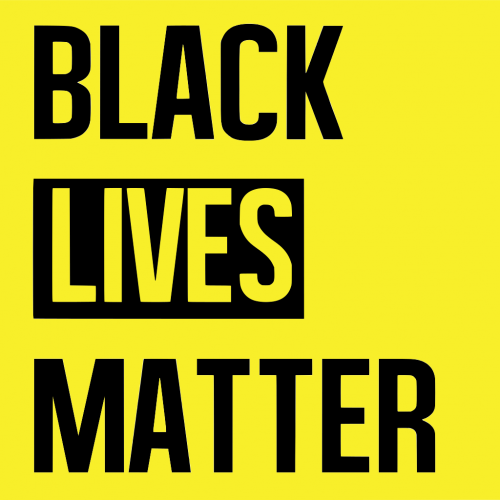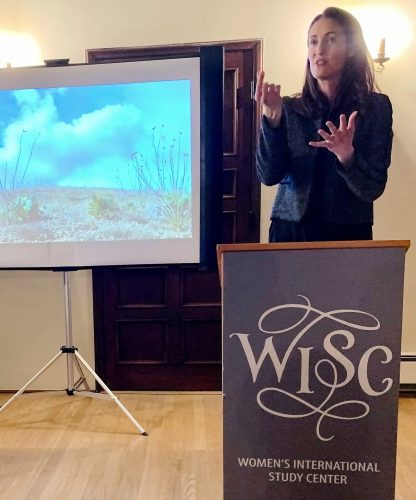June 15th, 2020
 During this historic summer of 2020, Black Lives Matter is garnering support nationally and internationally. For biographers and readers of biography, black lives matter, and writing black lives matters. Six BIO members will contribute essays to the July issue of The Biographer’s Craft about black lives, racism, and how they relate to biography. Here, in the meantime, are biographies of African-Americans by BIO members.
During this historic summer of 2020, Black Lives Matter is garnering support nationally and internationally. For biographers and readers of biography, black lives matter, and writing black lives matters. Six BIO members will contribute essays to the July issue of The Biographer’s Craft about black lives, racism, and how they relate to biography. Here, in the meantime, are biographies of African-Americans by BIO members.
Alexandrov, Vladimir. The Black Russian, 2013.
Bell-Scott, Patricia. The Firebrand and the First Lady: Portrait of a Friendship, Pauli Murray, Eleanor Roosevelt and the Struggle for Social Justice, 2016.
Branch, Taylor. America in the King Years, 3 Volumes, 1988, 1998, 2006.
Bundles, A’Lelia. On Her Own Ground: The Life and Times of Madam C. J. Walker, 2001.
Burgan, Michael: Olympic Gold 1936: How the Image of Jesse Owens Crushed Hitler’s Evil Myth, 2017.
Clinton, Catherine. Harriet Tubman: The Road to Freedom, 2004.
Cooper, Michael L. From Slave to Civil War Hero: The Life and Times of Robert Smalls, 1994
Forret, Jeff. Williams’ Gang: A Notorious Slave Trader and His Cargo of Black Convicts, 2020
Gerzina, Gretchen Holbrook. Mr. And Mrs. Prince: How an Extraordinary Eighteenth-Century Family Moved Out of Slavery and into Legend, 2008.
Gould, Jonathan. Otis Redding: An Unfinished Life, 2017.
Henig, Adam. Alex Haley’s Roots: An Author’s Odyssey, 2014; Baseball Under Siege: The Yankees, the Cardinals, and a Doctor’s Battle to Integrate Spring Training, 2017.
Joseph, Peniel. Stokely: A Life, 2014; The Sword and the Shield: The Revolutionary Lives of Malcolm X and Martin Luther King, Jr., 2020.
Kaplan, Carla. Zora Neale Hurston: A Life in Letters, 2002.
Kelley, Kitty. Oprah: A Biography, 2010.
Kiesel, Diane. She Can Bring Us Home: Dr. Dorothy Boulding Ferebee, Civil Rights Pioneer, 2015.
Kranish, Michael. The World’s Fastest Man: The Extraordinary Life of Cyclist Major Taylor; America’s First Black Sports Hero, 2019.
Meyer, Eugene. Five for Freedom: The African-American Soldiers in John Brown’s Army, 2018.
Mikorenda, Jerry. America’s First Freedom Rider: Elizabeth Jennings, Chester A. Arthur, and the Early Fight for Civil Rights, 2020.
Morris, James McGrath. Eye on the Struggle: Ethel Payne, the First Lady of the Black Press, 2017.
Newkirk, Pamela. Spectacle: The Astonishing Life of Ota Benga, 2015.
Parker, Alison M. Unceasing Militant:The Life of Mary Church Terrell, due in December 2020.
Rampersad, Arnold. The Art and Imagination of W. E. B. Du Bois, 1976; The Life of Langston Hughes, 2 Volumes, 1986, 2002; Jackie Robinson: A Biography, 1997; Ralph Ellison: A Biography, 2007.
Shepard, Ray. Now or Never!: Fifty-Fourth Massachusetts Infantry’s War to End Slavery, 2017.
Snyder, Brad. A Well-Paid Slave: Curt Flood’s Fight for Free Agency in Professional Sports, 2007
Teachout, Terry. Duke: A Life of Duke Ellington, 2013.
Tooma, Billy. The Black Eagle of Harlem (documentary film), 2017.
Washington, Eric K. Boss of the Grips: The Life of James H. Williams and the Red Caps of Grand Central Terminal, 2019.
Williams, Sonja. Word Warrior: Richard Durham, Radio and Freedom, 2015.
Woelfle, Gretchen. Mumbet’s Declaration of Independence, 2014; Answering the Cry for Freedom: Stories of African Americans and the American Revolution, 2016.
If you know of a biography by a BIO member that should be added to this list, please email Michael Burgan.
 During this historic summer of 2020, Black Lives Matter is garnering support nationally and internationally. For biographers and readers of biography, black lives matter, and writing black lives matters. Six BIO members will contribute essays to the July issue of The Biographer’s Craft about black lives, racism, and how they relate to biography. Here, in the meantime, are biographies of African-Americans by BIO members.
During this historic summer of 2020, Black Lives Matter is garnering support nationally and internationally. For biographers and readers of biography, black lives matter, and writing black lives matters. Six BIO members will contribute essays to the July issue of The Biographer’s Craft about black lives, racism, and how they relate to biography. Here, in the meantime, are biographies of African-Americans by BIO members.



 This meeting is free and open to all who register.
This meeting is free and open to all who register.

